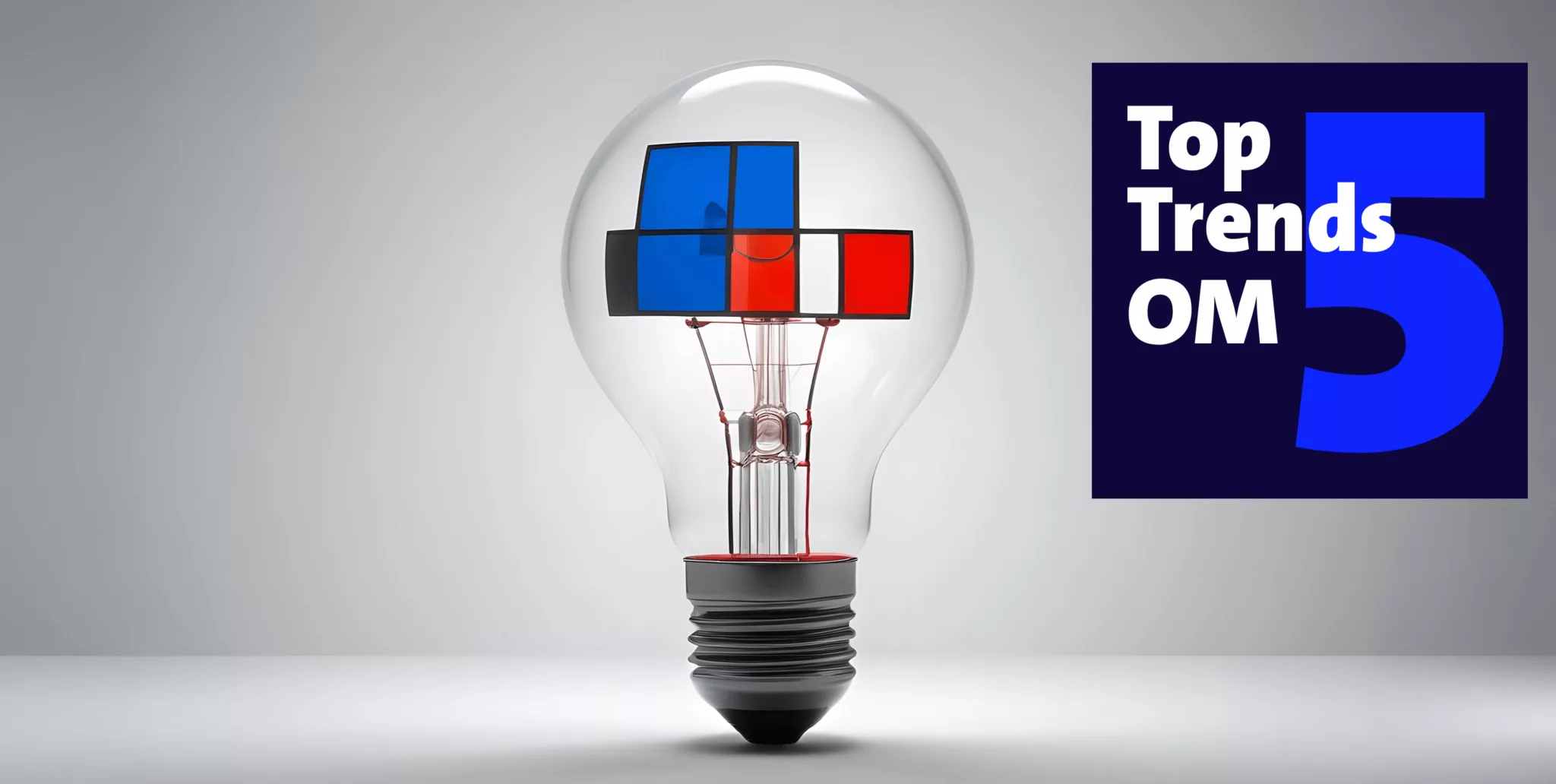Automation, hyper-personalisation, further development of search technology – these
These trends will continue in 2025.
The digital world remains dynamic. In 2025, online marketing will still be characterised by far-reaching automation. AI agents are taking over more and more routine tasks and innovations such as AI-supported personalisation are creating completely new and highly individualised user experiences. We at schalk&friends recognise these five key trends:
1. Automation with Performance Max (PMax) – differentiation through fine tuning
The increasing automation of Google Ads, driven by Performance Max (PMax), makes management easier. PMax uses machine learning to automatically optimise campaigns and allocate budgets in a targeted manner. To minimise wastage and stand out from the competition, a clear separation of brand and generic campaigns and precise feed optimisation are crucial. Broad match keywords, combined with smart bidding, offer reach advantages, but require regular monitoring to ensure that only relevant search queries are served. Those who use high-quality data and skilfully manage automated campaigns can achieve better results and differentiate themselves in the long term.
2. AI agents – increasing relevance for digital marketing
AI agents will play an increasingly important role in 2025. The first systems are already taking on subtasks such as segmenting target groups, optimising bids or creating content. In the future, AI agents could increasingly act autonomously and take over routine tasks. However, their use still requires human control, especially when it comes to creative and strategic decisions. Companies that rely on AI agents at an early stage can increase their efficiency and prepare for future developments without losing sight of the necessary flexibility.
3. Hyper-personalization – tailored experiences for customers
While traditional personalisation is based on basic demographic data, hyper-personalisation goes one step further: with the help of AI and real-time data, companies can create individual experiences that are precisely tailored to the behaviour, preferences and needs of each individual customer. Predictive analytics and dynamic content play a key role here. Companies that consistently implement hyper-personalisation benefit from increased engagement, higher customer satisfaction and long-term brand loyalty.
4. Search technology in transition – AI drives new developments
According to Google CEO Sundar Pichai, AI will fundamentally change Google search and enable significantly more complex queries. Advances in natural language processing using models such as BERT and MuM have already helped to make searches more precise – a first step towards new search formats. A current example of this is “AI Overviews”, which are already providing the first context-based summaries.
In addition to AI Overviews and Google Gemini Live, there are reportedly plans for a further integration of Google Gemini: the so-called “AI mode”. This mode should make it possible to place search queries in a coherent context and make them more precise through queries. It is not yet known exactly how this AI mode will be designed.
These changes will be necessary as the flood of information continues to increase and competition from new platforms such as ChatGPT grows. Companies should prepare for possible changes at an early stage in order to secure their visibility in the changing search landscape.
5. From third-party cookies to first-party data – new paths in marketing
With the gradual phasing out of third-party cookies, first-party data is increasingly becoming the focus of digital marketing. Companies must increasingly focus on the data they receive directly from their users in order to ensure precise targeting and personalised experiences in the future. First-party data offers decisive advantages over third-party cookies: With properly obtained consent, they are more compliant with data protection regulations, as companies have more control over which data is passed on to external providers (vendors). They also create more trust among users through transparency.
Technologies such as Customer Data Platforms (CDPs) and Identity Resolution are indispensable for realising the value of this data. With tools like these, companies can create comprehensive customer profiles and develop targeted campaigns. In addition, solutions such as Enhanced Conversions enable the secure use of first-party data for advertising platforms such as Google by performing data synchronisation in hashed form. The challenge remains to collect and manage data not only effectively, but also in compliance with data protection regulations.
Conclusion:
The rapid development of the digital marketing landscape requires a high degree of adaptability and innovative strength. The increased use of artificial intelligence is the driving force behind this and is creating completely new opportunities. This brings with it challenges such as growing competition and increasing user demands. Companies that react flexibly and focus on sustainable strategies can successfully capitalise on these developments.
More trend articles:






